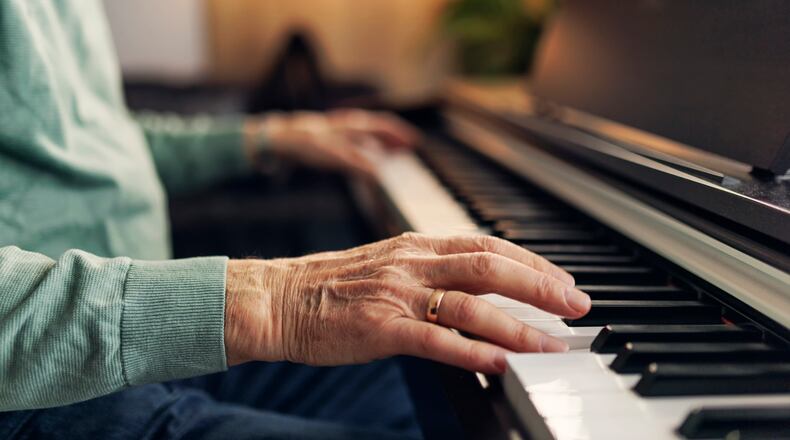According to UCLA Health, listening to music uses many parts of the brain and is especially beneficial to seniors, improving brain function and mental well-being.
Several studies have shown that music can help reduce anxiety and stress, improve pain tolerance, and reduce agitation and stimulate memories for people with dementia.
For senior citizens who are interested in learning a new skill, playing an instrument can encourage social engagement, improve focus, encourage self expression, stimulate brain activity, as well as help with fine motor skills. Seniors do not have to play an instrument to benefit, as simply listening to music or belting out your favorite song can support mental health.
Laura Baggette is board-certified music therapist with McCutcheon Music, which offers music therapists as part of its teaching staff. She describes music therapy as using music as a tool to achieve cognitive, communication, emotional, physical, social or spiritual goals.
“Music, especially live music, activates all quadrants of the brain,” Baggette said.
Baggette notes that music therapy is personalized and that the therapy option, as well as its efficacy, are not well known to the general public. She has worked in private practice for 19 years and welcomes all abilities and ages.
“Personal musical tastes are very important and a part of every therapy plan,” Baggette said. “The connections and progresses made are plentiful. I am still working with some of my original clients. We are aging happily and harmoniously together.”
Julie Lindsey, 84, started taking weekly mandolin lessons three years ago with Jim McCutcheon. Her instrument was a gift from a mentor at Miami University.
“Every time I play or pick up my instrument, I think of him and hope he is smiling down with pride in my accomplishments,” she said.
Lindsey said music has always been important to her and she started playing the mandolin about 20 years ago.
“Music is a universal gift to us all and brings so much joy to the world,” she said. “Another aspect of music, as with the other arts, is that there is no language barrier.”
If you can’t help but move your feet or sway to your favorite song, embrace it — movement can help strengthen motor skills, which may help keep falls at bay by improving balance.
“Never let age stop you from moving forward,” Lindsey said. “I would encourage others to believe in themselves and their ability to accomplish what they set out to do. Do not hesitate."
About the Author

